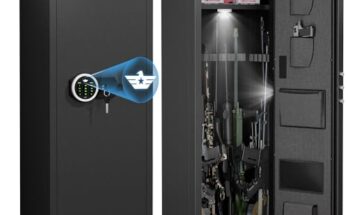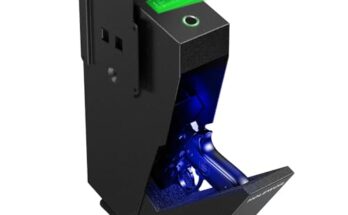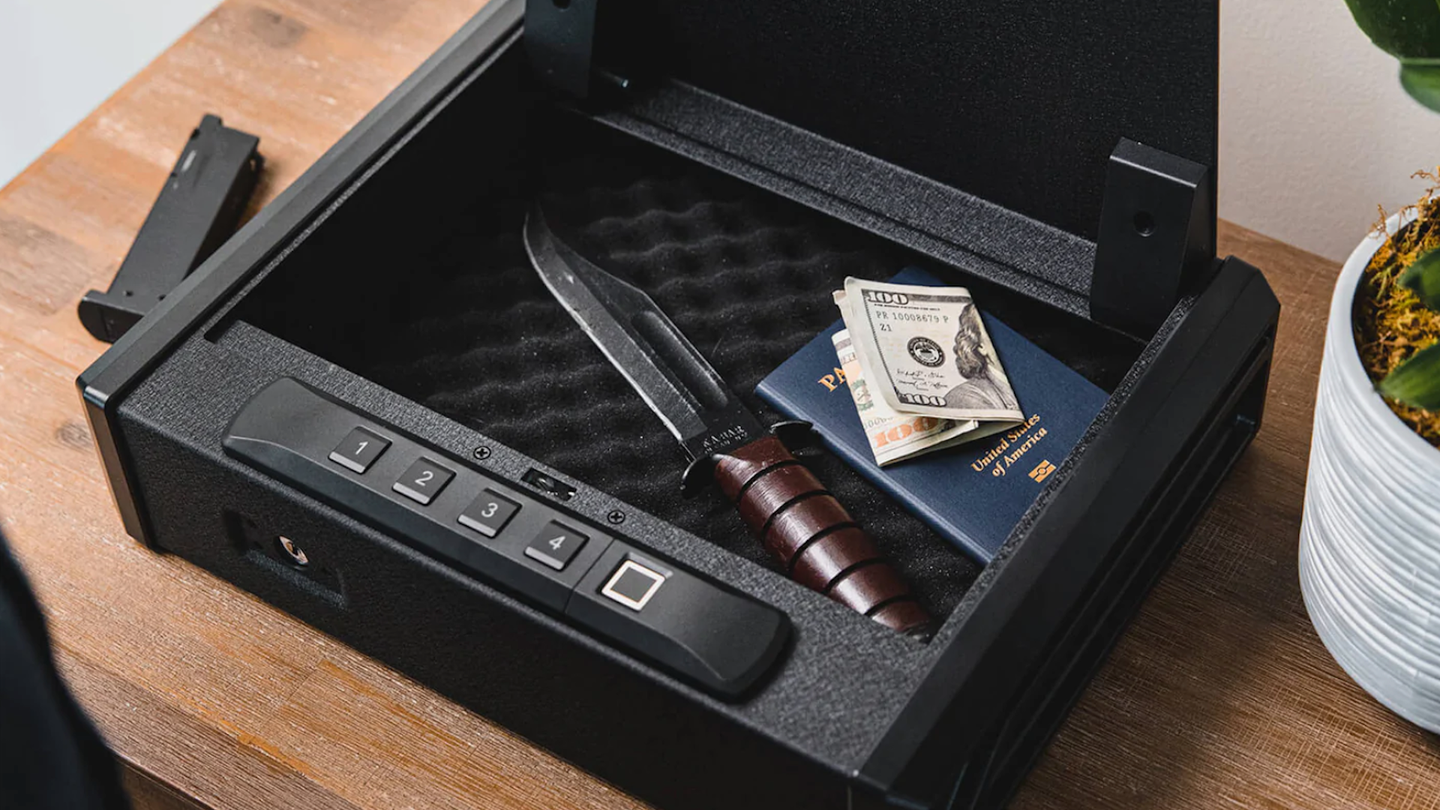Yes, you can rekey your gun safe to enhance its security. Rekeying helps to maintain restricted access if keys are lost or stolen.
Ensuring the security of your firearms is crucial, and rekeying your gun safe is a practical measure to achieve that. It is an often straightforward process that can be carried out by a professional locksmith, or sometimes even by the owner if the safe’s design permits.
By rekeying your safe, you not only bolster security but also have the chance to update the locking mechanism if needed. This proactive step can prevent unauthorized access and gives gun owners peace of mind, knowing that their weapons are securely stored. Regular maintenance of your safe, including occasional rekeying, is essential for both safety and compliance with firearm storage laws.

Credit: www.amazon.com
Why Rekey Your Gun Safe
Security for firearms is paramount. Rekeying your gun safe might be the answer. It adds a layer of security to your firearms.
Older locks might become predictable. Duplicate keys might exist. By rekeying, you control who has access.
The Importance Of Gun Security
Gun safes keep weapons away from unauthorized users. Lives depend on robust gun security. Children and intruders must not have access.
It’s all about responsibility. Owners must ensure only they can open their safes. Rekeying is a proactive step in upholding this.
Risks Of Unchanged Locks
Without rekeying, risks escalate. Old locks might fail. Keys lost can end in the wrong hands.
- Breaches: Unchanged locks invite unauthorized entry.
- Wear and Tear: Over time, locks degrade. Security becomes compromised.
- Lost or Stolen Keys: If keys are lost, anyone might gain access.

Credit: www.amazon.com
Assessing Your Gun Safe
Knowing when to rekey your gun safe is crucial for your security. A gun safe keeps firearms out of the wrong hands. Yet, like any security system, locks can wear down or become outdated. Let’s check if your gun safe lock needs an update.
Types Of Gun Safe Locks
Different locks offer varying security levels. Consider the lock you use:
- Key Locks: Simple and traditional, but keys can get lost or copied.
- Combination Locks: Offer security without keys, yet require memory.
- Electronic Keypads: Quick access, but batteries and electronics can fail.
- Biometric Locks: High-tech, with your fingerprint as the key, but potentially pricey.
Indicators It’s Time To Rekey
Here are signs to watch for:
- Wear and Tear: Harder to open? It might be time for a change.
- Stolen or Lost Keys: If keys vanish, rekey immediately.
- Forgotten Combinations: Repeatedly? Consider a rekey.
- User Changes: New user? Update for better control and safety.
The Rekeying Process Explained
Securing your gun safe is crucial. Keys can get lost or fall into the wrong hands. Rekeying your gun safe can enhance security. Let’s explore how you can rekey your gun safe.
Tools You Will Need
Tools play a vital role in rekeying. Before you start, gather these items:
- Owner’s manual: For specific instructions.
- Screwdriver set: For disassembling.
- Key decoder: To decode the current key.
- Rekey kit: Suited for your safe’s brand.
- Tweezers: To handle small parts.
Step-by-step Rekeying Guide
Follow this guide to rekey your gun safe:
- Review the manual: Understand your safe’s lock.
- Remove the back plate: Using the screwdriver.
- Take out old pins: With the tweezers.
- Decode your key: Using the key decoder.
- Insert new pins: Match them to your new key.
- Reassemble the lock: Carefully and test it.
Rekeying is detailed but doable. Take your time for a successful rekey.

Credit: www.reddit.com
Professional Vs. Diy Rekeying
Keeping your gun safe secure is a priority. Rekeying can give you peace of mind. You might wonder which is better: hiring an expert or doing it yourself? Let’s explore both options.
When To Call An Expert
Some situations call for professional skills and tools:
- Complex Lock Mechanisms: Expertise is vital for complicated locks.
- Lack of Time or Confidence: Pros save time and assure quality work.
- Warranty Concerns: DIY might void your warranty. Check the terms first.
Pros And Cons Of Diy
| DIY Pros | DIY Cons |
|---|---|
| Cost Savings | Risk of Damage |
| Learning Experience | Potential Security Flaws |
| Immediate Results | Limited Tools and Knowledge |
Before attempting DIY, assess your skills and the tools you have. Remember, a secure safe keeps your firearms safe. If you’re unsure, always lean on a professional’s expertise.
Enhancing Gun Safe Security Post-rekey
Rekeying your gun safe can be a smart step in bolstering its security. After you’ve achieved this, you might ponder, what’s next? Enhancing the security of your gun safe doesn’t stop with a rekey. It is essential to implement further measures to ensure the highest security level for your firearms. From additional security features to proper maintenance, each aspect plays a vital role in safeguarding your safe.
Additional Security Measures
- Install an alarm system or a tamper sensor that alerts you to unauthorized attempts to open your gun safe.
- Utilize a biometric lock as a secondary measure, adding a personal and non-duplicable layer of security.
- Secure your safe to the floor or wall to prevent removal or theft of the entire unit.
- Consider adding a decoy safe in your home to mislead potential burglars.
Combining these measures with your rekeyed lock greatly enhances overall security.
Maintenance Tips For Longevity
- Regularly check the lock mechanism for signs of wear and tear or potential malfunction.
- Clean the interior and exterior of your gun safe with a soft cloth, avoiding harsh chemicals.
- Ensure the environment where you keep your safe is dry to prevent rust or corrosion.
- Lubricate moving parts annually with a non-greasy lock lubricant to promote smooth operation.
Consistent upkeep ensures your rekeyed gun safe will function effectively for years to come.
Common Mistakes To Avoid
Enhancing your gun safe’s security can be smart. Yet, certain errors might put your safe’s security at risk. Learn these common missteps to ensure that you enhance security, not compromise it.
Misplacing The New Key
After rekeying your gun safe, guard your new key. A misplaced key can be as risky as an unsecure lock. Follow these tips:
- Choose a memorable spot: Store the key where you will remember but intruders cannot find.
- Use a key hook: A dedicated hook can keep keys organized and accessible.
- Avoid common hiding places: Thieves know to look under mats or flowerpots.
Damaging The Lock Mechanism
Rekeying your safe requires precision and care. A damaged lock may lead to a malfunctioning safe. Prevent this by:
- Reading the manual: Understand your safe’s specific rekeying process.
- Using the right tools: Only use tools that match your safe’s requirements.
- Seeking professional help: If unsure, a locksmith can safely rekey your safe.
Legal Considerations And Compliance
Storing firearms safely is not just about security but also legal responsibility. Rekeying your gun safe can enhance security, but always aligns with the law. Legal considerations vary by location and often outline the specifics of gun safe security. Let’s delve into the regulations and compliance measures required when you decide to rekey your gun safe.
State Regulations On Gun Safes
Each state has unique regulations pertaining to gun safes. These rules dictate safe features, including lock mechanisms. Reviewing your state’s guidelines is crucial before rekeying. Using an unrecognized method can lead to legal issues. A table of common regulations can help clarify:
| State | Locking Mechanism Requirements |
|---|---|
| California | Must meet DOJ standards |
| New York | Safe storage laws in certain cities |
| Texas | No specific safe requirement, but liability laws in place |
Ensuring Legal Compliance After Rekeying
Post-rekeying compliance necessitates verifying legal requisites. A certified locksmith can reaffirm that the new key mechanism adheres to state laws. A checklist post rekeying considers:
- Notification to insurance provider
- Updating home security system details
- Proper disposal of old keys
Check with local law enforcement to ensure your rekeyed gun safe meets all legal safety standards. Keeping records of the rekeying process may be beneficial for future reference. Follow the above steps to ensure your gun safe remains a secure, and legal, storage place for your firearms.
Frequently Asked Questions On Can You Rekey Your Gun Safe For Added Security
Can A Safe Be Rekeyed?
Yes, a locksmith can rekey most safes if you need to change the lock mechanism due to security concerns or lost keys.
Can A Locksmith Make A Key For A Gun Safe?
Yes, a locksmith can create a new key for a gun safe if you have lost the original. They use specialized tools to craft keys without the original.
Can A Locksmith Reprogram A Safe?
Yes, a skilled locksmith can reprogram most electronic safes if you’ve lost the combination or need it changed.
Can You Put A New Lock On An Old Safe?
Yes, you can install a new lock on an old safe, but consulting with a professional locksmith is advisable for compatibility and installation.
Conclusion
Securing your gun safe by rekeying is both practical and achievable. It amplifies your security measures and personalizes your access. Trust in professionals for a flawless job that ensures peace of mind. Remember, safeguarding firearms is paramount; rekeying is a smart step to enhance your safety protocol.
Choose to rekey; prioritize security.




